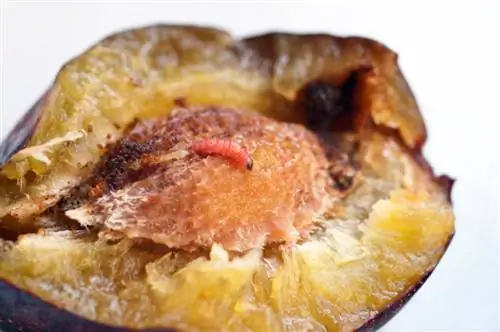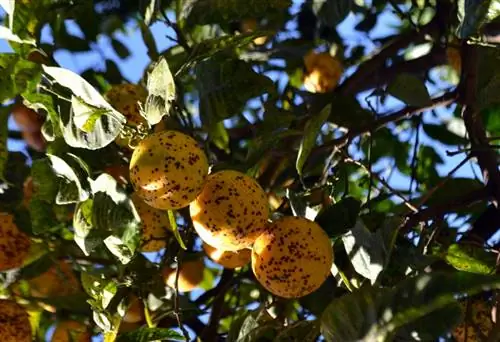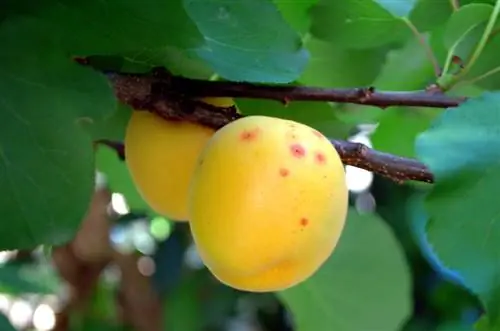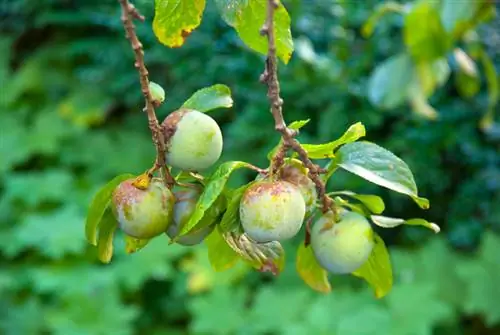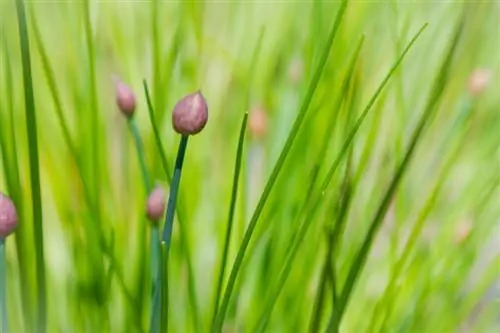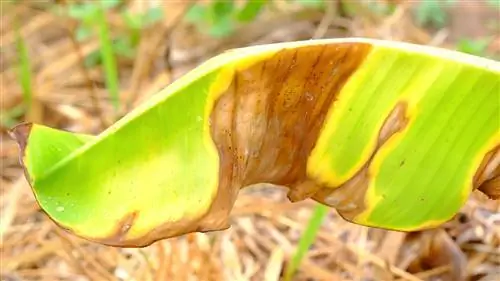- Author admin leonars@hobbygardeners.com.
- Public 2023-12-16 16:46.
- Last modified 2025-01-23 11:20.
This pest is also known as the plum moth. It feels at home in plums, plums or mirabelle plums. If there is a heavy infestation of this pest, the harvest is at risk. We explain the background and combat methods.
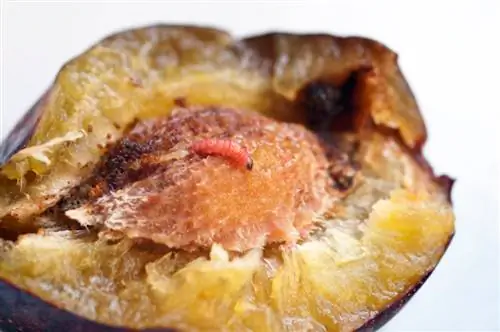
How can you effectively combat plum maggots?
In order to successfully combat plum maggots (plum moth), infected fruits should be removed immediately, maggot traps used and bird boxes installed. Fruit mummies and corrugated cardboard also help to prevent the pests from spreading.
Key data
The plum maggot is known as the plum moth. In spring the female butterflies lay their eggs on the small fruits. Place one piece per plum. The second generation repeats this process between July and August.
As soon as the maggot hatches, it nests inside the fruit. The pulp serves as a sweet nutritional basis for the pest.
- Color: orange-yellow
- Overwintering: in fruit mummies
- plums contaminated with feces
Recognize
Infestation can be recognized by holes in the fruit peel. The unripe plums quickly turn purple. Shortly afterwards they fall to the ground.
Treat
As soon as you notice a pest infestation, all fruits with holes must be removed. This includes fallen specimens as well as specimens that are still hanging. In this way you prevent the spread of the second generation. Household waste is preferred.
Note:
Infected fruits must not be disposed of in the compost. There is a risk of progressive spread and transmission to other trees.
In addition, specialist retailers offer special maggot traps (€29.00 on Amazon). These are based on a natural principle and are free of toxins. Using sexual attractants, male butterflies get lost on the sticky surfaces. In this way, they are locally eradicated. The traps hang directly in the trees. There are no insecticides against plum maggots.
Prevention
Alternatively, we recommend installing bird boxes on plum trees. Songbirds are among the plum maggot's natural predators.
Tip:
Remove the fruit mummies. The maggots hibernate in these.
The plum moths lay their eggs near the plum tree. Corrugated cardboard can be placed around the tree trunk for this purpose. Discarded maggots should be disposed of with household waste. Only use this method in dry weather. The cardboard must be replaced after rain.
Tips & Tricks
Strong plum trees protect themselves from pest infestations and diseases. A suitable location is the best prerequisite for he althy growth.

